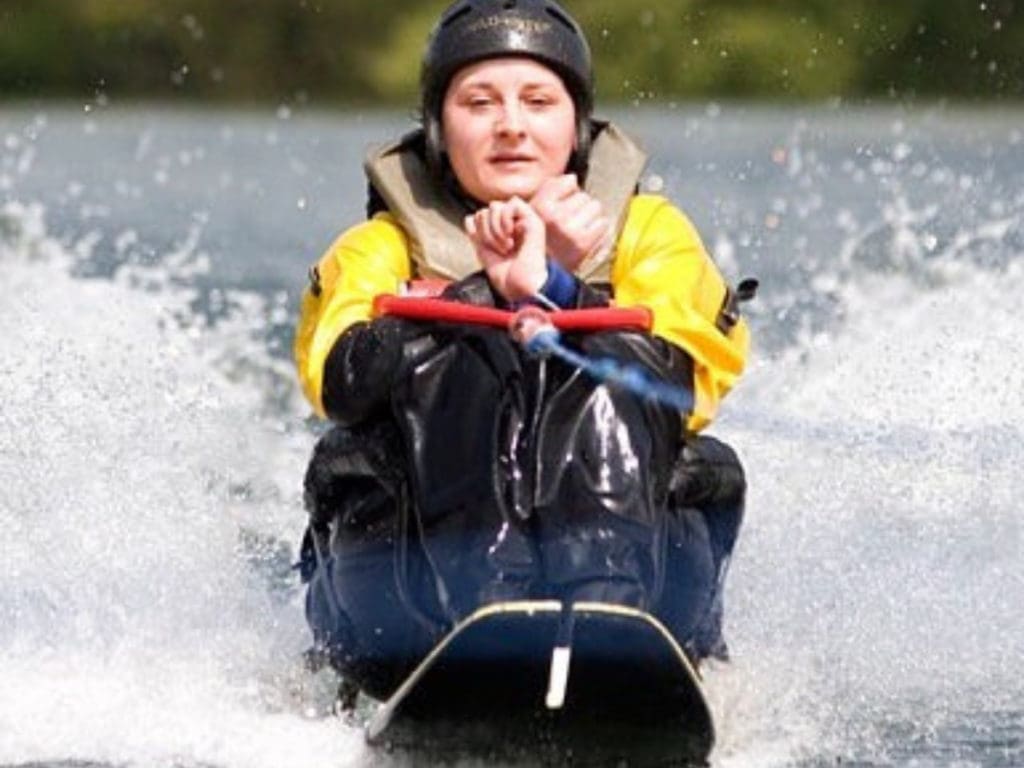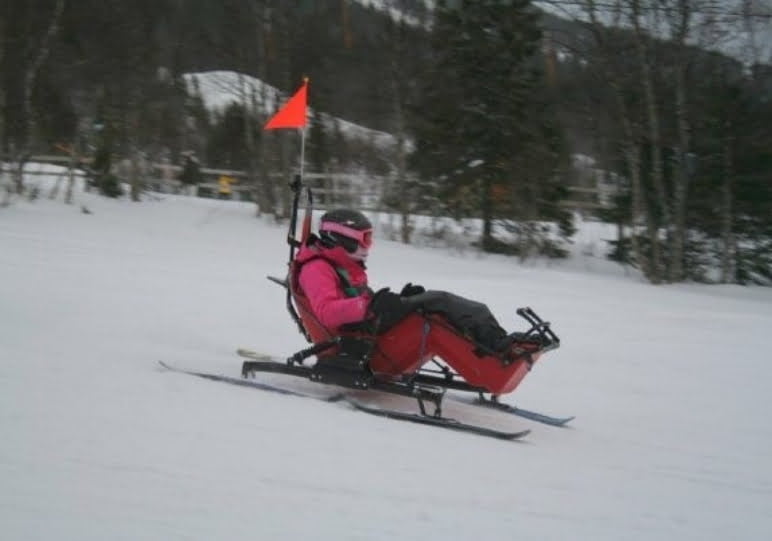Kylie’s Story: Keeping sporty after spinal cord injury
3 April 2019

Before her injury, Kylie was really into sport and keeping active. She played football, rugby, and took part in show jumping too. When she was 18, she sustained a C5/C6 spinal cord injury. Despite this high-level injury, Kylie was absolutely determined to get back into sports and keep fit.
“When I was in hospital one of the very first things I did was start researching what sports I could do as a wheelchair user. Learning about adaptive sports helped me start to understand that I could still have a good life after my injury. I just wanted to crack on with my rehab so I could get out and go home!”
While she was recovering from her injury at Stanmore spinal centre, Kylie received a visit from Back Up. After discovering her passion for sport, we suggested that she apply for our Sweden ski karting course.
“Skiing with Back Up was amazing. I had never skied before my injury, so it was something totally new to challenge myself with. Doing this course when I was fairly newly injured was wonderful too, because it helped me realise anything was achievable.
“I discovered I was in no way limited with the scope of adaptive sports I could do.”

Kylie skiing on one of Back Up’s ski courses
When she left hospital, Kylie began training full-time with London Wheelchair Rugby Club. She went on to represent Team GB in rugby and athletics in two different Paralympic games. Of course, you don’t need to be a Paralympian to stay healthy. Kylie recommends that every wheelchair user should maintain an active lifestyle.
“Using a chair, it becomes quite easy to put weight on. Day to day pushing doesn’t do an awful lot. It’s important to look after your muscles and bone structure. I use a standing frame 15 minutes a day to look after my bones. I also use free weights to build up my muscles.”
By looking after her physical health, Kylie is able to be much more independent. Exercising and playing sport makes transferring between chairs, getting dressed, and bathing “much easier.” Through looking after her physical health, Kylie also sees the benefits in her mental health.
“Sport has helped me my whole life, and that hasn’t changed after my injury. It taught me to be mentally tough, which helped me massively by keeping me resilient.
“I can’t stress this enough – When you’re feeling stressed or down, go out and spend an hour or two playing sports with people. It will absolutely lift your mood.”
For Kylie, one of the most healing parts of staying active comes from socialising. Just like when she came on the Back Up ski course, surrounding herself with people who can understand her experiences does wonders for her health. For any spinal cord injured individual, she recommends they find a sport they’d like to try, and then find something local and go regularly.
“It’s great to be part of a team where everyone has been in the same situation. You can learn from others, get tips, go out and make friends. If you’re newly injured, this is especially useful. It lifts you up and shows you everything will be ok.”
If you need help finding adaptive sports in your area, take a look at the UK Parasports website. To learn more about our ski course and other life-changing opportunities, visit our website.

